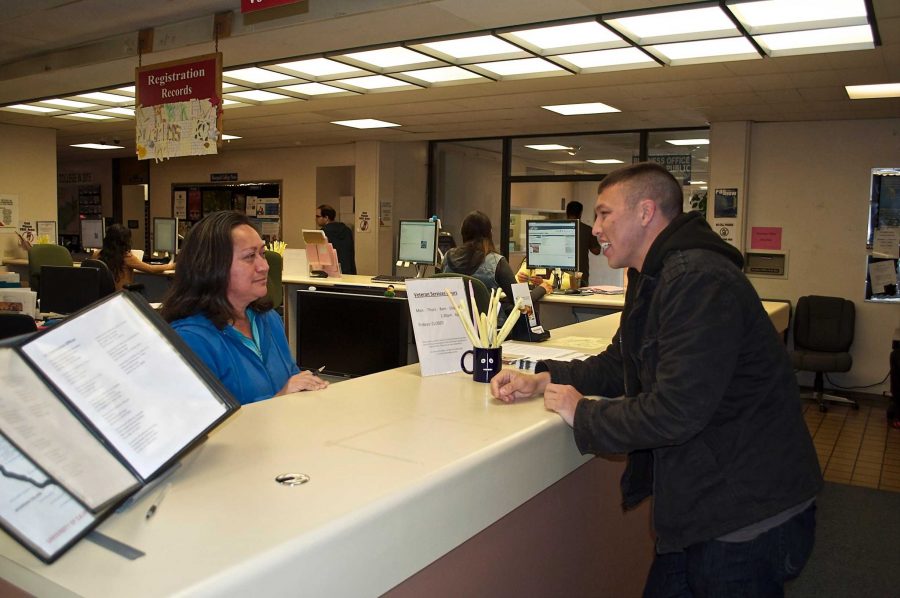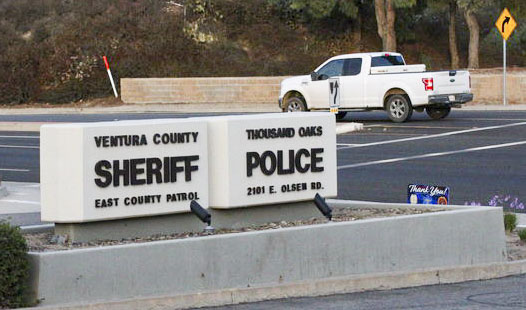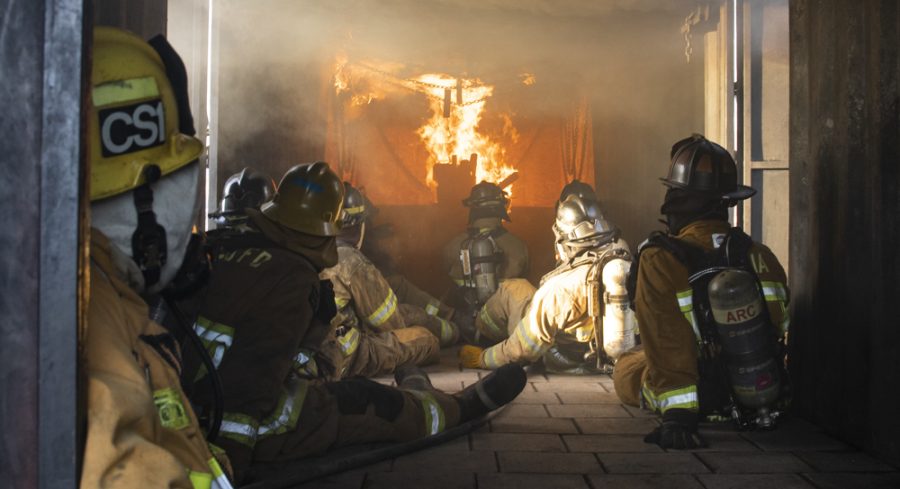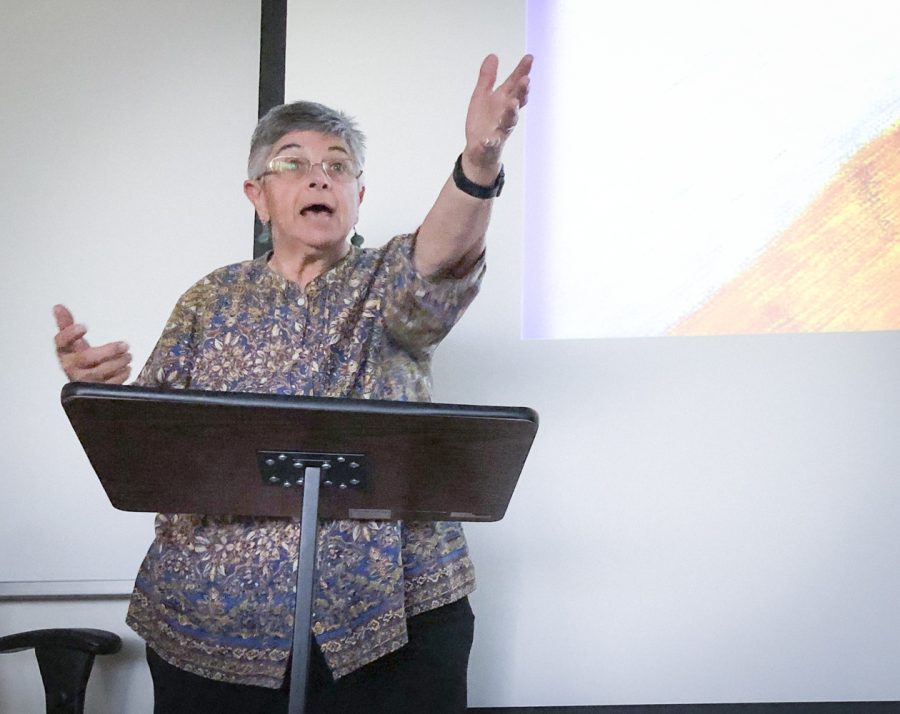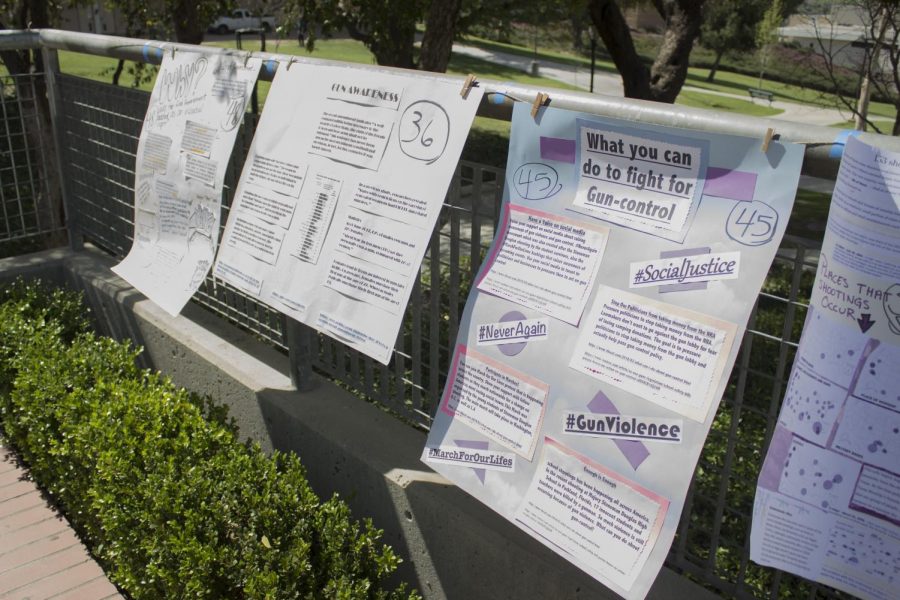Many service men and women face emotional and mental challenges when they make the transition from active duty in the armed forces to the pursuit of academic goals.
A study conducted by The National Center for Veterans Studies shows some of the emotional and psychological challenges that student veterans face when readapting to civilian and academic life. Of the 628 student veterans examined, 24% experienced severe depression, 35% experienced severe anxiety, and 46% experienced symptoms of post-traumatic stress disorder (PTSD).
Moorpark College Veterans Counselor Giselle Ramirez said that some student veterans don’t seek help and instead try to deal with their obstacles on their own.
“They think they can handle it all,” said Ramirez. “Often times, students and colleagues will ask me about how many students have PTSD or traumatic brain injury and it’s hard to say because you can’t really ask those questions. They hide it very well, at least the students I have seen.”
Student veterans are not always easy to spot. While some may choose to wear their gear, others prefer to remain anonymous.
“It’s kind of an invisible population on our campus,” said Ramirez. “Unless they are wearing their military backpack, which most of them don’t, there’s no way of knowing who’s a veteran.”
While in some instances it may be difficult to decipher who has served, this population undoubtedly exists in large numbers. According to the United States Department of Veteran Affairs, California has the nation’s highest veteran population at just under two million; in Ventura County alone, the Census Bureau reports over 49,000 veteran residents. Records and Registration Technician Maria Martin says that there are approximately 450 student veterans on campus, and that about half of them use the services that are offered by the school.
Some student veterans on campus are unaware of the services that are available to assist them.
“They suffer from not knowing who is who on campus,” said Ramirez. “When they’re in the military they all know what rank they are, they all know what they do, and they all know what they’re a part of.”
There are a range of benefits and services available to veterans needing assistance at Moorpark College. Martin assists veterans every day by helping them to access the appointments and benefits they need. Like Ramirez, she is passionate about making the campus more conducive to veterans’ needs.
“Moorpark College needs to be more veteran-friendly,” said Martin. “We are open to anything that we can do to make that happen.”
Student veterans can visit the newly formed Veterans Club which meets on the first Monday of every month at 4:30 p.m. Michelle Perez, president of the Veterans Club, says that the club is fairly low-profile at the moment but that it hopes to spread awareness and encourage more veterans to attend.
“It’s mostly just so we can bond together over things that we’re dealing with,” said Perez. “We’re not your stereotypical college students.”
For more information about the Veterans Club, students can contact Saamon Legowski at [email protected]. In addition, veterans can also visit the Ventura Vet Center, located at 790 E. Santa Clara St. Suite 100, which provides a wide range of services and benefits to veterans and their families. For more information on the Ventura Vet Center, call 805-585-1860, or visit www.vetcenter.va.gov.

